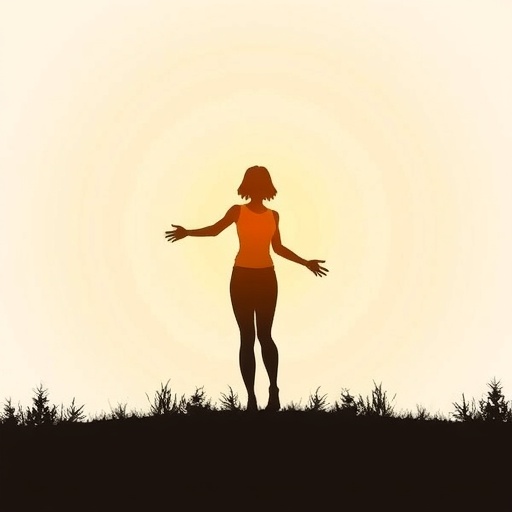A new study from the Kinsey Institute at Indiana University, published in journal Menopause, finds self-pleasure is a valuable care strategy for managing menopause symptoms, especially mood and sleep changes. Most women are open to trying it, yet few say their doctors have ever mentioned it.
Researchers surveyed a demographically representative sample of 1,178 women ages 40 to 65 in the United States about their experiences with menopause and the effectiveness of their current symptom management strategies including hormone therapy, supplements, lifestyle factors, and sexual pleasure, among others.
Almost 14% of perimenopausal women reported using regular masturbation as a symptom management strategy. Overall, participants were more likely to report using strategies such as exercise (25%), relaxation (24%), diet (21%), and supplements (19%) with few (4%) reporting using prescribed hormone therapy. Approximately a third reported no symptom management.
Compared to other approaches, self-pleasure was rated among the most effective strategies for symptom relief on a 5-point scale, scoring 4.35 versus 3.89-4.06 for various lifestyle changes. The effectiveness of hormone therapy also ranked highly at 4.2, despite having one of the lowest utilization rates.
When asked about how masturbation affects specific menopause symptoms, 46% of perimenopausal survey participants reported an improvement of at least one menopause symptom, including improved mood (43%), enhanced feelings of sexual desire and pleasure (13%), improved sleep (13%), improved vaginal lubrication (11%), pain relief (8%), reduction in hot flashes (3%), and other positive impacts (10%).
Importantly, a majority of perimenopausal women (66%) reported they would masturbate more if they knew it could positively impact their symptoms and more than half (57%) indicated they would be open to trying masturbation for symptom relief if their health provider recommended it, underscoring the importance of open, evidence-based conversations between patients and providers about sexual health. Perimenopausal women were significantly more likely than postmenopausal women to report that their doctor had talked to them about menopause (54% vs 46%), yet both reported low rates of receiving guidance from their doctor about masturbation (7% vs 4%).
“Conversations about menopause often focus on hormone therapy or lifestyle changes, but self-pleasure remains overlooked,” said Dr. Cynthia Graham, Senior Scientist at the Kinsey Institute. “Our findings suggest masturbation may play a meaningful role in symptom management.”
Researchers also uncovered a potential generational shift in views toward self-pleasure, with perimenopausal women significantly more likely than postmenopausal women to report that they had masturbated in the past year and that they had masturbated more often. Perimenopausal women were also significantly more open to self-pleasure for symptom relief compared with postmenopausal women. At the same time, not all women will be open to the idea of masturbation, regardless of whether it might help with symptom relief; one in five women surveyed reported having never masturbated in their lifetime.
This study, funded by sexual wellness company Womanizer, adds to a growing body of research emphasizing the connections between sexual wellbeing and menopause care. While effective menopause management requires a solution tailored to the individual, a combination of management strategies—including self-pleasure—is likely to yield the most positive health outcomes.
About the Kinsey Institute
The Kinsey Institute at Indiana University is the world’s premier research institute on human sexuality, relationships, and wellbeing, and serves as a trusted source for independent, nonpartisan, evidence-based information. The Kinsey Institute’s research centers and global collaborations are led by internationally renowned experts across disciplines including neuroscience, psychology, gender studies, public health, anthropology, and informatics. The Kinsey Institute also houses the world’s largest library and historical archive on human sexuality and offers a dynamic range of art exhibitions, public lectures, and educational programs. Visit kinseyinstitute.org to learn more and follow on LinkedIn or Instagram.
Journal
Menopause
DOI
10.1097/GME.0000000000002675
Method of Research
Survey
Subject of Research
People
Article Title
The role of masturbation in relieving symptoms associated with menopause
Article Publication Date
12-Nov-2025
Media Contact
Camilla Peterson
Kinsey Institute
Journal
Menopause
Funder
Womanizer
DOI
10.1097/GME.0000000000002675
Journal
Menopause
DOI
10.1097/GME.0000000000002675
Method of Research
Survey
Subject of Research
People
Article Title
The role of masturbation in relieving symptoms associated with menopause
Article Publication Date
12-Nov-2025
Keywords
/Health and medicine/Human health/Human biology/Human physiology/Menopause
/Social sciences/Sociology/Gender studies/Sexuality
/Health and medicine/Clinical medicine
/Health and medicine/Human health
/Social sciences/Psychological science/Behavioral psychology/Human behavior/Human sexual behavior
bu içeriği en az 2000 kelime olacak şekilde ve alt başlıklar ve madde içermiyecek şekilde ünlü bir science magazine için İngilizce olarak yeniden yaz. Teknik açıklamalar içersin ve viral olacak şekilde İngilizce yaz. Haber dışında başka bir şey içermesin. Haber içerisinde en az 12 paragraf ve her bir paragrafta da en az 50 kelime olsun. Cevapta sadece haber olsun. Ayrıca haberi yazdıktan sonra içerikten yararlanarak aşağıdaki başlıkların bilgisi var ise haberin altında doldur. Eğer yoksa bilgisi ilgili kısmı yazma.:
Subject of Research:
Article Title:
News Publication Date:
Web References:
References:
Image Credits:
Keywords
Tags: alternative menopause symptom relief methodseffectiveness of masturbation for menopausehormone therapy usage in menopauseKinsey Institute menopause studylifestyle strategies for menopause managementmenopause symptom managementmood changes during menopauseself-care strategies for perimenopausal womenself-pleasure for menopause reliefsexual pleasure and menopause wellnesssurvey on menopause experienceswomen’s health and menopause





